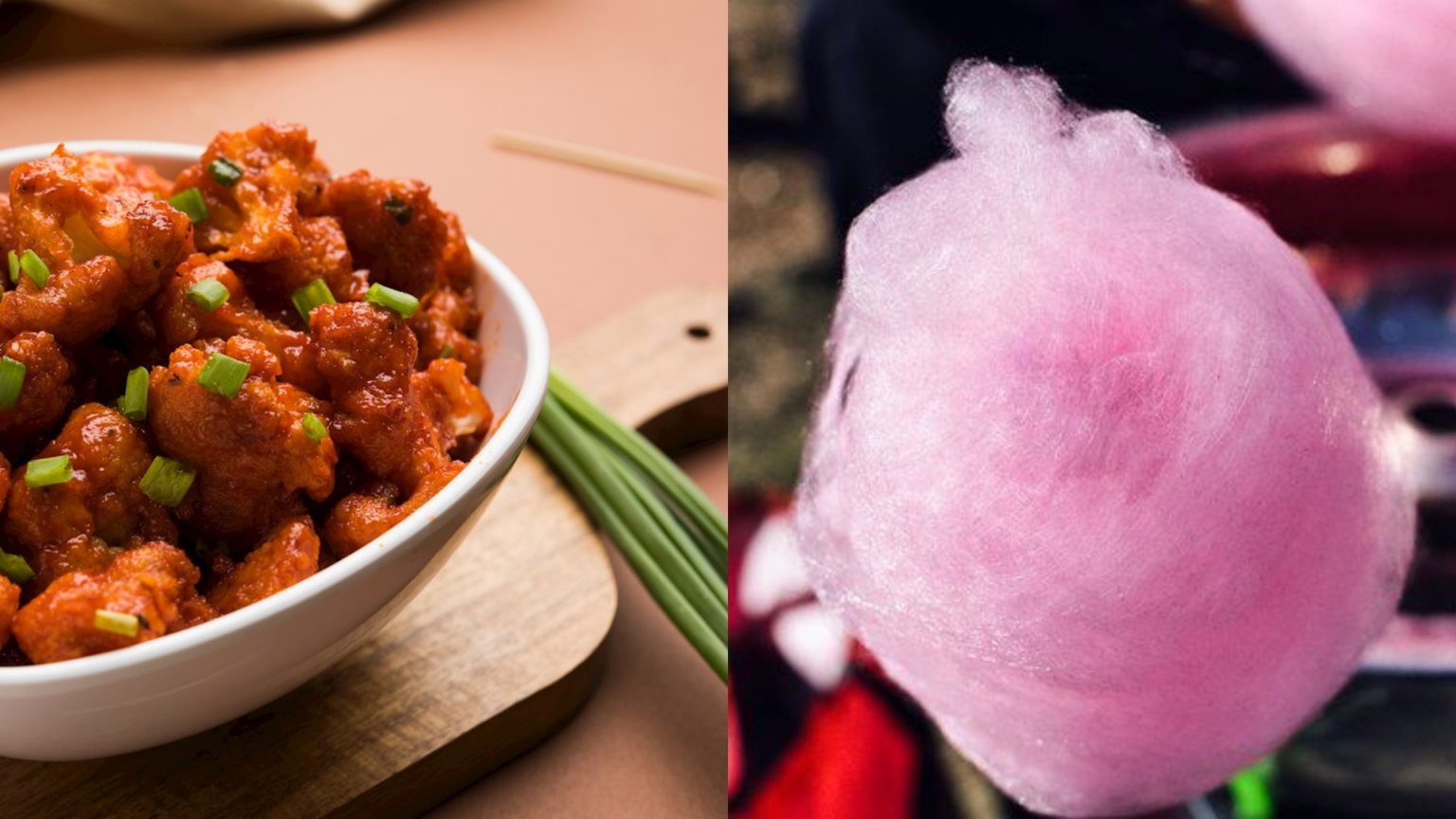This Monday, the Karnataka government banned the use of food coloring agents in cotton candy and gobi manchurian.
However, Karnataka’s Health Minister, Dinesh Gundu, has announced a complete ban on selling cotton candy and gobi manchurian.
Artificial food colors contain chemicals like Rhodamine-B, Carmoisine, Tartrazine, and Sunset Yellow. The government has urged buyers to refrain from preparing food items using synthetic colors.
“The artificial colors are harmful and unsafe,” says Dinesh Gundu.
After Tamil Nadu and Puducherry, Karnataka becomes the third stance to take such action.
Table of Contents
Why ban on Cotton Candy and Gobi Manchurian?
The Public Health Department recently conducted a survey to check Cotton Candy and Gobi Manchurian safety standards in Karnataka.
The food samples were collected from hotels, roadside shops, and other eateries. The lab tests revealed concerning results regarding the use of artificial colors.
Out of 171 samples of Gobi Manchurian tested, 64 were safe, and the remaining 107 were unsafe. The unsafe samples contain chemicals like Tartrazine, Sunset Yellow, and Carmoisine.
Similarly, out of 25 cotton candy samples collected, 1o were found safe, while 15 were unsafe. The unsafe counterparts contain Sunset Yellow, Tartrazine, and Rhodamine- B.
According to the survey conducted on February 11, 2024, the samples containing artificial food colors are considered unsafe. Some of them are carcinogenic. The results violate The Food Safety and Standards Act, 2006, and The Food Safety and Standards (Food Products Standards and Food Additives) Regulations, 2011.
Though Tartrazine is an approved food color agent, its use is restricted. The food items and amounts of Tartrazine that should be used are already mentioned and quantified. However, these restrictions are only for packaged food. Tartrazine’s use is strictly prohibited in freshly cooked food items.
Dinesh Gundu said Rhodamine-B is already banned according to existing laws. However, there is no ban on selling white cotton candy.
The ban on consuming artificial food colors used in cotton candy and Gobi Manchurian comes into immediate effect after the Commissioner of Food Safety issued the notification on March 11.
Violations of the regulations can result in fines up to 10Lakhs, including license cancellation and prison sentences ranging from 7 years to life imprisonment, according to the Food Safety and Standards Authority of India (FSSAI) Act.
What is Rhodamine-B (Rh-B)?
Rhodamine-B is a chemical commonly used for coloring paper, jute, leather, silk, and paints. It helps in attaining a pink or red color.
Due to its low cost, it becomes an attractive choice for using it in coloring food.
The powdered form of the chemical is green in color. When mixed in water, it turns pink. It is used in food items like cotton candy and gobi manchurian.
It is also frequently used in chili powder, chili oil, and sweet potatoes. Despite its widespread use in manufacturing, packaging, and selling of different food items, it is considered carcinogenic.
Studies have found that constant consumption can damage the cerebellum tissue in the brain and the brainstem that connects the brain and the spinal cord in rat species.
However, there is limited evidence of its carcinogenicity in humans. Meanwhile, California and the European Union have classified Rhodamine-B as carcinogenic.
As per regulations by the Food Safety and Standards Authority of India (FSSAI), the permitted food colors are Carmoisine, Erythrosine, and Ponceau 4R for red coloring, Sunset Yellow, Tartrazine for yellow coloring, Brilliant Blue FCF and Indigo Carmine for blue coloring, and lastly Fast Green FCF for green coloring in food items.
The Food Safety and Standards Authority of India (FSSAI) has also published a few techniques to determine Rhodamine-B detection in ragi and sweet potato. These tests can be performed at home by the buyers. Look at these videos on their YouTube channel: Food Safety and Standards Authority of India.
Previously, Goa’s Mapusa Municipal Council has banned gobi manchurian in their region. A subsequent ban on cotton candy was seen in Tamil Nadu and Puducherry last month.
